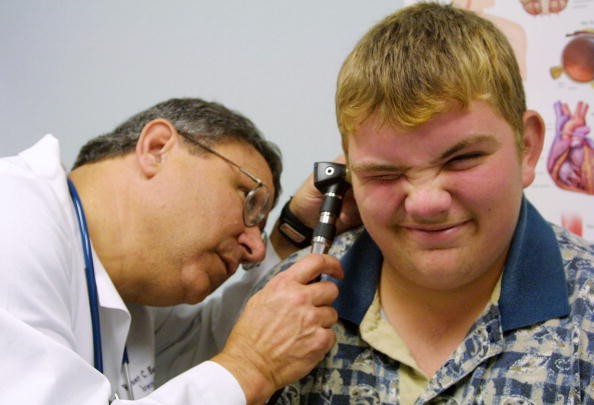An experiment was conducted in chinchillas. Findings show that for the treatments of ear infections, the antibiotic gel is better and safer to be used than the oral antibiotics.
It has been discovered after experiments with animals that gel antibiotic is the easiest and more convenient way to treat ear infection, AZ Daily Sun reported. The test using the antibiotic gel was conducted on chinchillas which have ear infection. Incredibly the ear infections of the animal were 100 percent treated. However, it is not yet clear if it is going to be effective on children.
The ear infections are commonly found in children, particularly the middle ear infection which is called otitis media. Because of the taste and the texture, giving an oral antibiotic medicine would be a struggle for parents to administer to their kids.
The director of the Laboratory for Biomaterials and Drug Delivery at Boston Children's Hospital and the leading scientist for this research Dr. Daniel J. Kohane expressed "Right now, the way otitis media is treated is with a three-times-a-day, 10-day antibiotic course, and it tends to be pretty much full-contact wrestling to get kids to take the antibiotics -- that is one problem we set out to address."
The topical ear drops are difficult to be absorbed by the middle ear as the ear drum is blocking the way. That is why the ear drops are not reaching the middle ear and the topical ear drops are not effectively treating the ear infection. Thus, doctors are giving oral antibiotics instead, NBC News reported.
The scientists were able to develop antibiotic gel that is packed with additional chemicals. These chemicals are used with the skin absorbing drugs. Thus, these chemicals act on the ear drum to become permeable and to open its channels in order for the antibiotic gel to reach the middle ear.
The antibiotic gel for ear treatment is called ciprofloxacin and it is not the same as ear treatment antibiotic used in the commonly administered pink liquid. By the administration of the antibiotic gel, the physician would drop the solution into the ear canal. It would then harden like earwax. Then the antibiotic would be slowly released.






















